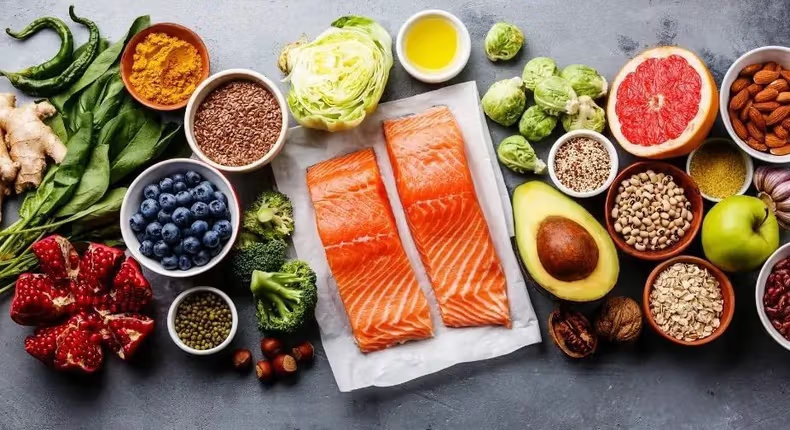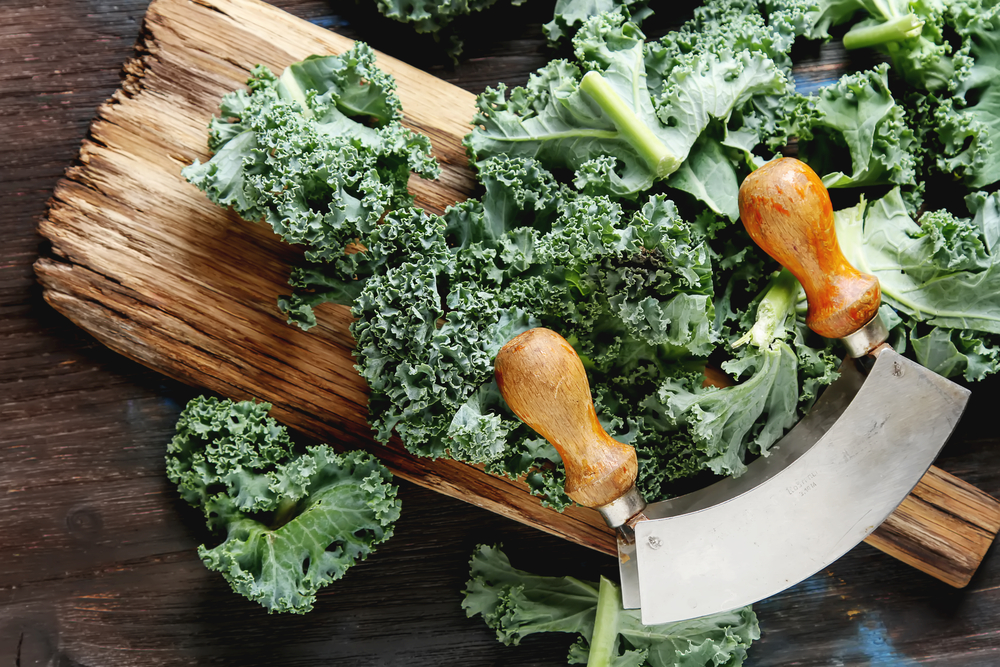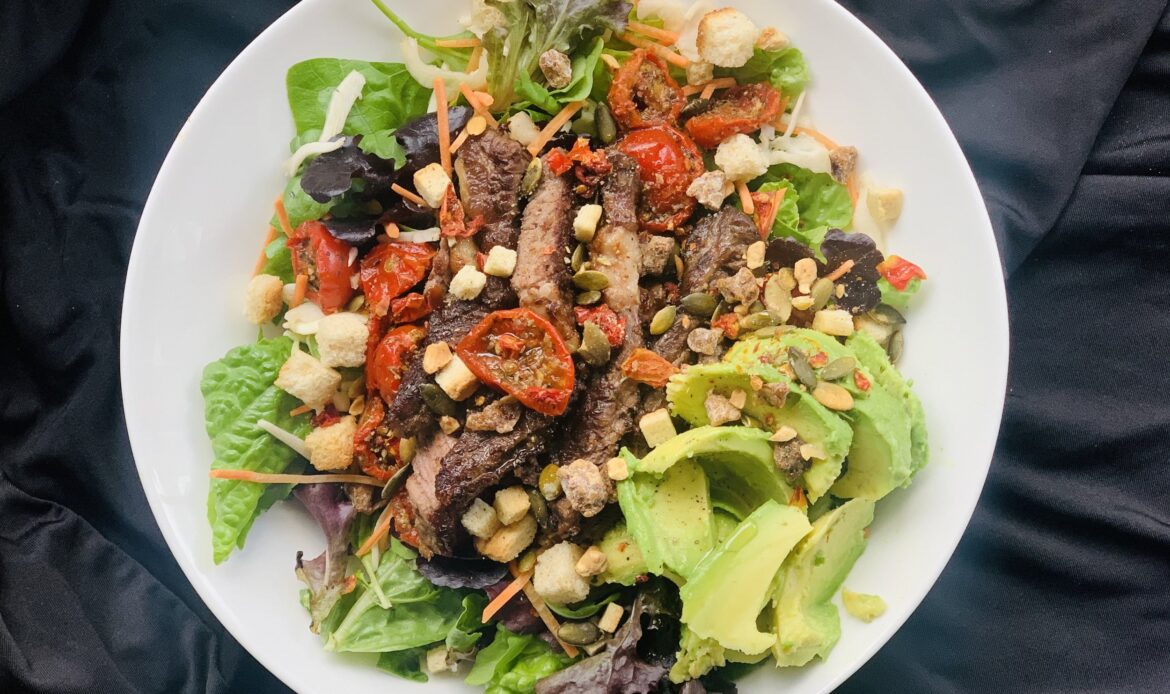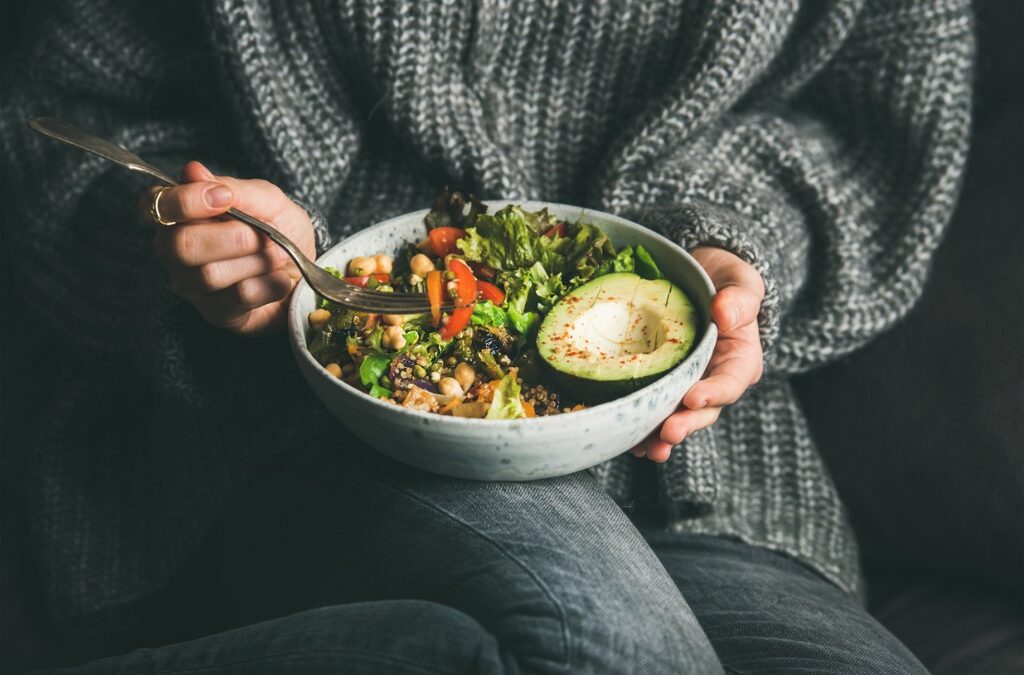
Polycystic Ovarian Syndrome (PCOS) can often feel like an uphill battle, where managing symptoms such as weight gain, irregular periods, and mood swings becomes a constant challenge. While medications are essential in managing PCOS, there is another powerful tool at your fingertips—your diet.
The foods you eat directly impact your hormones, blood sugar levels, and even your energy, making the proper diet a crucial part of managing PCOS. Specifically, focusing on a balance of protein, healthy fats, and fiber can help address insulin resistance, support hormone balance, and stabilize energy levels—all key factors in managing PCOS symptoms.
Let’s break down exactly how you can craft a PCOS-friendly plate and how each component works to help you feel your best.
The Role of Protein in Managing PCOS

Many women face insulin resistance when it comes to PCOS. Insulin is a hormone that helps control how your body processes sugar, and in women with PCOS, the body’s cells often become less responsive to it. This leads to higher blood sugar levels and can worsen hormonal imbalances, contributing to weight gain and irregular periods.
Protein is the secret weapon for managing insulin resistance. When you incorporate protein into your meals, it slows down the absorption of sugar into the bloodstream. This keeps your blood sugar levels steady and prevents the big spikes and crashes contributing to cravings and fatigue.
Imagine starting your day with a breakfast high in protein—something as simple as eggs or Greek yogurt. That steady release of energy keeps you going throughout the morning without the need for sugary snacks or caffeine. In essence, protein is like the foundation of a house—it keeps everything stable, reduces inflammation, and makes your body’s hormones more balanced and happy.
Adding protein sources like lean chicken, fish, eggs, or plant-based options like tofu and beans to each meal will support your energy levels and help you maintain a healthy weight, one of the struggles for many women with PCOS.
Read: PCOS Awareness Month: Understanding Polycystic Ovarian Syndrome and Navigating Life with It
Healthy Fats: The Energy and Hormone Balancer

When you think of fats, it’s easy to think of them as “bad” or something to avoid. However, healthy fats are actually essential for women with PCOS, especially when it comes to balancing hormones. Your body needs fats to produce and regulate hormones, and a diet rich in healthy fats can help reduce inflammation and improve insulin sensitivity.
Healthy fats provide your body with sustained energy, helping prevent energy crashes and making you feel fuller for longer. Foods rich in these fats, such as avocados, nuts, seeds, and olive oil, are perfect for maintaining stable blood sugar levels, which is crucial for women with PCOS.
For example, imagine adding a slice of avocado to your lunch or using olive oil as a salad dressing. The fat in the avocado doesn’t just provide flavor; it slows down digestion, ensuring that your blood sugar remains steady throughout the afternoon. This can help you avoid that mid-afternoon slump, a common problem when insulin levels are out of balance.
Moreover, healthy fats support the production of estrogen and progesterone, the hormones that regulate your menstrual cycle. By including these fats in your diet, you are helping to create a more stable hormonal environment, leading to more regular periods and fewer symptoms like acne or mood swings.
Fiber: The Blood Sugar Stabilizer

While protein controls insulin spikes, fiber is its partner in crime, especially when it comes to keeping blood sugar levels in check. Fiber slows down the absorption of carbohydrates in the body, which prevents sudden increases in blood sugar. This is particularly important for women with PCOS, as blood sugar imbalances can exacerbate insulin resistance and worsen symptoms.
Fiber also plays a key role in digestion, helping your body process food more effectively and promoting a healthy gut. For women with PCOS, this is essential since digestive health is linked to hormone regulation. The more fiber in your diet, the less likely you are to experience sudden cravings or the “sugar crashes” that make managing PCOS harder.
Consider a meal with fiber-rich foods like vegetables, beans, lentils, or chia seeds. Imagine a hearty salad with spinach, beans, and a sprinkle of chia seeds. The fiber in this meal keeps you feeling full and helps maintain a steady blood sugar level for hours. That’s the power of fiber—it keeps things running smoothly, supports weight management, and helps with overall hormone balance.
Additionally, fiber is crucial for managing cholesterol levels, which is important since women with PCOS are at a higher risk for cardiovascular issues. A fiber-rich diet helps reduce the risk of heart disease by lowering cholesterol and improving heart health.
Read: 8 Foods That Naturally Cleanse and Detoxify Your Body
Building a PCOS-Friendly Plate: The Key to Success
Now that we know how protein, healthy fats, and fiber work together to balance hormones and manage PCOS symptoms, it’s time to put it into practice. Think of every meal as an opportunity to nourish your body with the right ingredients that fuel you and help keep your hormones in check.

Start with a protein base like grilled chicken or beans, add a healthy fat such as avocado or olive oil, and round it off with fiber-rich vegetables or legumes. This balance will help ensure that your body remains energized and that your blood sugar levels remain stable throughout the day.
A good example of a PCOS-friendly plate using Nigerian foods might include grilled mackerel (protein), sautéed ugu (pumpkin leaves) with palm oil (healthy fats and fiber), and a side of beans (fiber and plant-based protein)**. This meal provides a steady release of energy, supports hormone balance, and helps manage insulin sensitivity—everything your body needs to stay strong and healthy while living with PCOS.
The mackerel provides high-quality protein that helps regulate insulin levels, while the ugu leaves offer fiber and iron, essential for keeping your blood sugar stable. Beans, rich in fiber and plant-based protein, further slow down digestion, helping to prevent blood sugar spikes and keeping you full for longer. These familiar ingredients not only nourish but also work together to support hormone balance and overall well-being for women managing PCOS.
Take Control with a PCOS-Friendly Diet

Living with PCOS can be challenging, but your diet is one of the most powerful tools you have to manage the condition. Focusing on meals that balance protein, healthy fats, and fiber can stabilize your blood sugar levels, support hormone balance, and maintain a healthy weight. The beauty of this approach is that it’s not about restrictions but instead making thoughtful choices that work with your body, not against it.
Small changes, like swapping out processed carbs for whole grains or adding more protein to each meal, can make a huge difference over time. Remember, managing PCOS is a journey; your plate is where it all begins.
Ready to take control of your PCOS through diet? Start by focusing on protein-rich meals, healthy fats, and fiber. Share your own PCOS-friendly meal ideas or tips in the comments, and let’s support each other on this journey to better health and well-being.
